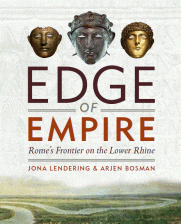![]() Books 23, 24 and 25 are now up too: more fragments.
Books 23, 24 and 25 are now up too: more fragments.
By now, as I round the bend toward the end of Mr. Diodorus — only about 150pp before I hit the wall of copyrighted material (fortunately not much: the very fragmentary Books 33‑40, only 150pp of text total, less than 5% of the Library of History) — I’m beginning to have my own burgeoning theory of why the text of Diodorus hasn’t survived as well as others, and very noticeably, the parts dealing with Rome: he is not pro-Roman. Never failing to point out the cruelty, rapacity, and impiety of the Romans, he would not have been a great favorite among Roman readers. Conversely and less grimly, it’s even rather funny, he goes out of his way several times, whenever something unsavory is afoot, to point out that Greeks had nothing do with it; or if they did, that they wuz just mongrels! (25.2.2)
An interesting little item is a passage in which by way of supplication after Cannae Roman matrons purportedly “cleansed the statues [of the gods] with their hair” (25.19); the similarity to the New Testament story of Mary Magdalen is made more striking by a whiff of a connection with sexual promiscuity (and the traditional association of Magdalen with the woman caught in sin, even though it may not be warranted by the Biblical text). Unfortunately, this particular passage of Diodorus comes to us via Tzetzes, 12c and Christian — so that we’re up in the air whether this is a separate, and earlier, ancient instance of this pilose or trichic practice, or just contamination by someone who’d read the later tale. On balance, following what in fact is a solid principle of Biblical exegesis, I plump for the former: the tale is so bizarre that why would it suddenly surface here if there were no reason for it, i.e. if it were not in the text of Diodorus?



 Posted by Bill Thayer
Posted by Bill Thayer 
 Subscribe to feed
Subscribe to feed